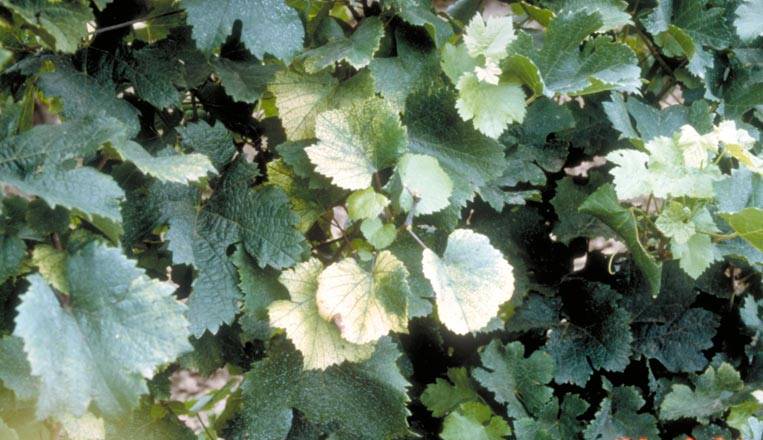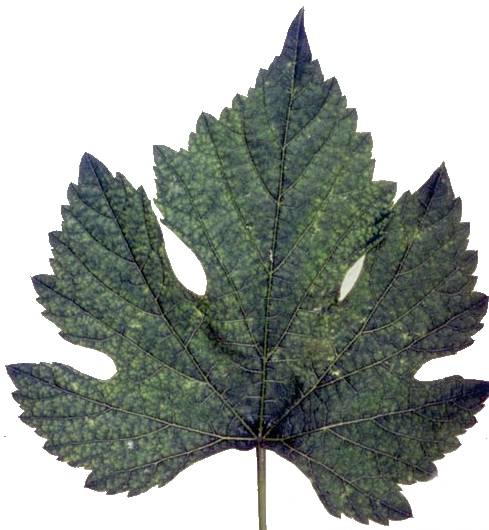Arabis Mosaic Virus
 Causal Agent
Causal Agent
Arabis Mosaic Virus (ArMV)
Hosts
The host range includes a wide variety of ornamental plants and fruits. Hosts include cherry, euonymus, grapes, forsythia, lilac, peach, plum, raspberry, rose and strawberry.
Symptoms

This virus has been reported as common in grapevines in other states and is widespread in Europe. Dagger nematodes are reported to transmit ArMV from diseased to healthy plants. The primary method of spread is through movement of infected propagation material.
Control
Growers should plant certified, disease-free plants. Pruning tools should be disinfected with a bleach solution (1 part household bleach, 9 parts water) between cuts. Infected plants should be removed and discarded. Prior to replanting with susceptible hosts, a soil-test to determine the presence of plant pathogenic nematodes (which may harbor and spread the virus) should be performed.

